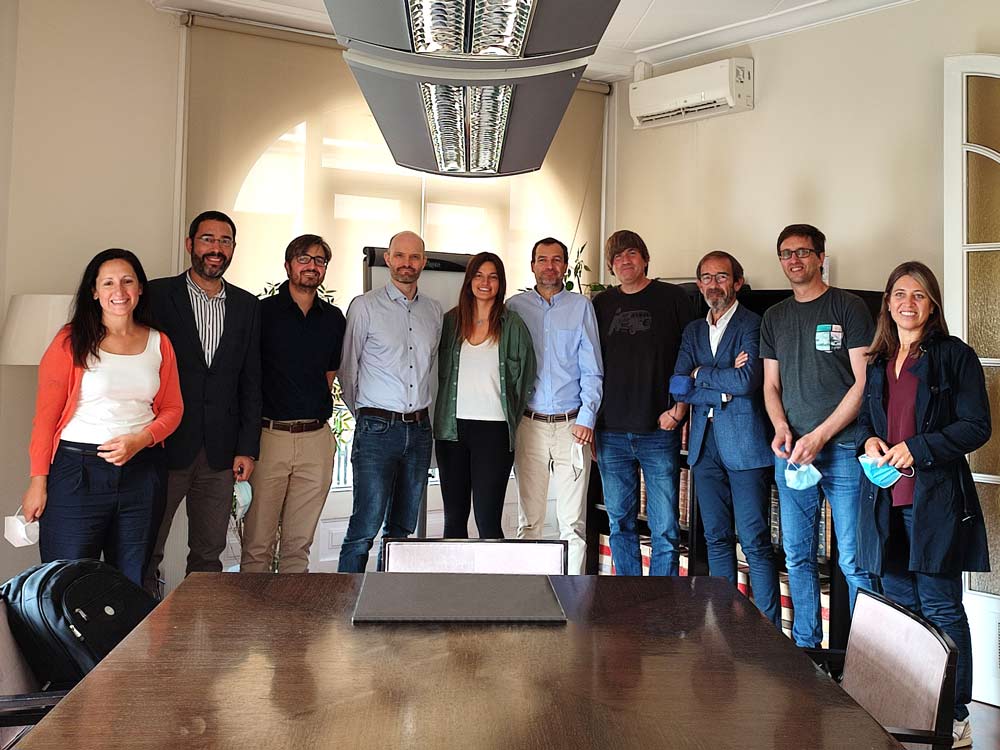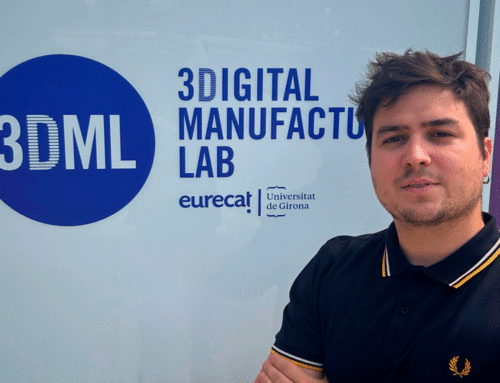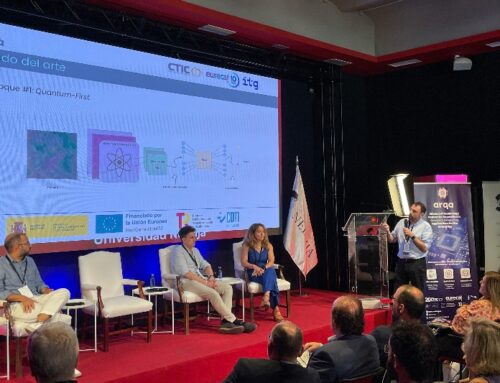The Eurecat technology centre, Sant Joan de Déu Hospital and The Collider, the innovation programme of Mobile World Capital Barcelona (MWCapital), have set up Ephion Health. The company will market the first digital platform using artificial intelligence to monitor the progress of patients with diseases and conditions that impinge on their mobility, estimated to account for at least 25 percent of the population.
The platform has been developed by Eurecat and transferred to Ephion Health as part of its technology enhancement operations. It has been validated with people suffering from Duchenne muscular dystrophy as part of the 6MWT+ (The Six Minutes Walk Test Plus System) project, funded and supported by EIT Health since 2019.
The platform currently makes it possible to measure patients’ mobility and functional capacity by integrating up to eight types of biomechanical and physiological sensors which allow up to five types of variables to be collected.
These data are collected through a mobile app and transmitted securely and anonymously to the company’s servers. Finally, the data are analysed using artificial intelligence algorithms to get a single index (a score from 0 to 100) which is directly related to the patient’s state of health.
Ephion Health’s software thus enables “objective and precise patient monitoring whether in the hospital or remotely,” said Mireia Claramunt, a Eurecat researcher and the company’s Chief Technology Officer.
“The ability to move around easily and perform everyday tasks is the first thing to deteriorate due to a large number of diseases,” added Sebastian Idelsohn, also a Eurecat researcher and Chief Strategy Officer at Ephion Health. “Improving, restoring or even slowing down the progressive loss of these abilities associated with mobility and functional capacity is the main concern of most patients.”
Ephion Health’s goal “is to expand the number of diseases the platform can monitor,” commented Quique Llaudet, Ephion’s Chief Executive Officer. Two new clinical studies have therefore been started up with patients with neuromuscular diseases at the Santa Creu i Sant Pau and Sant Joan de Déu hospitals. A third pilot study is being run in partnership with Quirón Salud to monitor the risk of falls in elderly people.
Preliminary studies conducted by Ephion Health suggest that using this technology in clinical practice “could save the European healthcare system at least €1 billion,” said Joe Zakzeski, Ephion’s Chief Operating Officer.
Likewise, Felip Miralles, director of Eurecat’s Digital Health unit and a scientific adviser to the company, pointed out that Ephion’s technology would also fast-track clinical research “by enabling faster and more cost-effective development of new drugs for diseases that affect patients’ mobility.” Consequently Ephion Health makes its platform available to pharmaceutical firms to develop and introduce digital endpoints in their clinical trials.
At the moment questionnaires in which patients can rate their abilities are used to measure mobility and functional capacity. This feedback is useful for health professionals but has its limitations as it is subjective. So functional tests are also carried out to get more objective data about patients’ mobility and functional capacity. In one of them, the patient walks down a hospital corridor and the clinician assesses their mobility. These tests are widely used in research and clinical care yet they still involve a degree of subjectivity, are not completely accurate, call for optimal patient cooperation and have to be performed in the hospital in the presence of a clinical assessor.
A platform validated with Duchenne muscular dystrophy patients
The Ephion Health platform was developed and validated with Duchenne muscular dystrophy (DMD) patients at Sant Joan de Déu Hospital as part of the European 6MWT+ (The Six Minutes Walk Test Plus System) project as a result of financial support, training and access to the European network of innovators of EIT Health, the largest community of best-in-class health innovators backed by the EU’s European Institute of Innovation and Technology (EIT).
The project was coordinated by Eurecat and also involved Rigshospitalet in Copenhagen, the University of Barcelona, the Duchenne Parent Project Spain Family Association and Genesis Biomed, a health industry consultancy.
This genetic disease affects mainly males and leads to progressive loss of muscle mass meaning that DMD patients experience a gradual decrease in mobility. There are an estimated 40,000 DMD patients in Europe.
By using Ephion Health’s platform medical staff were able to follow up on their patients’ progress more accurately and sensitively which made for more personalised and effective treatment. Ephion Health’s platform for monitoring DMD patients has already been clinically validated and is in the process of certification so it will be available on the market in the coming months.
You can watch Ephion Health’s video here







